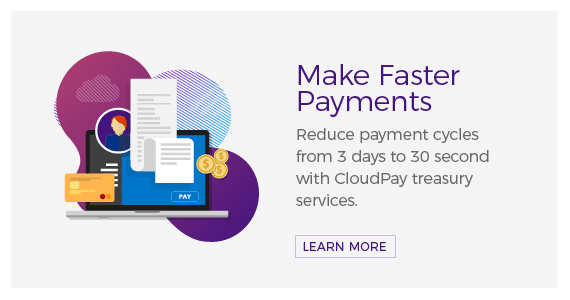For most global payroll teams right now, the future can wait. Their focus, understandably, remains fixed on the immediate challenges of COVID-19 and adapting to the constant curveballs being thrown their way – from worldwide tax legislation changes to redundancies and furlough payments. But while that short-termism is entirely justified for the next two or three months, it’s how organizations navigate the months ahead that will ultimately determine their future recovery and growth.
What we return to post-pandemic won’t look like business as usual. Much will have changed, bringing both fresh challenges and new opportunities. This pandemic has created a significant turning point in the use of technology, and opportunities now lie ahead for organizations to work smarter than ever before. This is true for the payroll department as much as any other business function.
It’s entirely likely that the take-up of emerging technologies will accelerate in the environs of this new normal. And, given that the fast distribution of cash at scale will be key in helping to get the economy back on track, Blockchain technology may feature higher up the agenda than ever before. In fact, had Blockchain technology reached maturity slightly earlier, systems may already be in place that would have given businesses and individuals faster access to the money granted to them through COVID-19 related support schemes.
But if, as many predict, the rate of Blockchain adoption does increase on the back of COVID-19, what does that mean for the future of digital payments? More specifically, what does it mean for payroll? In this article, we aim to answer those big questions.
The accelerated move toward the Digital Dollar
If anything highlights the suddenly increased appetite for faster digital payments, it’s the inclusion of ‘Digital Dollar’ proposals in a recent US Senate bill. While not passed (amid fears of rushing the technology), the draft bill raised the concept of issuing money through a central bank digital currency (CBDC), as officials look to get cash quickly back into American pockets.
According to the bill, this would enable the government to send direct payments to US citizen’s digital wallets (called FedWallets) held by the Federal Reserve. Yet the proposals said nothing of a decentralized ledger (which sits at the heart of Blockchain technology), leading key crypto-currency figures to suggest blockchain-based stablecoins as an alternative approach.
The decentralized nature of Blockchain is key to its understanding, and to its viability as a potential platform for payroll. Blockchains don’t belong to any single authority, they’re created across a peer-to-peer network – a chain of records linked together through cryptography. This distributed ledger approach has many positive implications when it comes to paying employees.
Streamlining the global payroll process
Blockchain uses the distributed ledger concept to provide real-time verification of payments, without the need for intermediaries such as banks and clearing houses. By cutting out the middlemen, payroll payment processes can be streamlined, speeded up and made significantly cheaper – with a reduced role for the banks meaning a reduction in bank charges.
Swifter, smarter payments certainly makes sense in the context of a growing gig economy, which seems sure to boom even further given the now-widespread acceptance of remote working. Gig economy workers such as freelancers and contractors often suffer with cash flow problems, and could gain significantly from on-demand pay, which can be facilitated through the use of ‘smart contracts’ stored on the ledger, enabling payment to be released as soon as the task is done.
Arguably the greatest potential impact of Blockchain is reserved for global businesses, where the technology has the potential to revolutionize cross-border payments – and further bridge the gap between payroll and payments. International remuneration typically involves a multitude of different payment types, from BACS payments to wire transfers, but Blockchain can be the answer to a far more unified approach.
Blockchain could also help international organizations overcome the complexities of currency exchange. Exchange rates can often fluctuate by the hour, presenting a degree of uncertainty for both employer and employee, but Blockchain can handle exchange rates in real-time to ensure payments are made accurately and on schedule.
International payments are also noted for being hard to track, but the trail of digital verification left by Blockchain can ensure greater transparency, enabling workers to monitor the status of their payment at all times.
The mobile digital wallet
While streamlining the payroll process, the greater speed and transparency of Blockchain payments also presents an opportunity to enhance and digitize the employee experience. As a touchpoint for every single employee, payroll has always been central to the employee experience and COVID-19 has reinforced just how vital the function is to people’s lives, but its influence has yet to be leveraged to its full potential.
With digital payments comes the opportunity for businesses to engage with their people in a whole new way. Just as the US government floated the idea of ‘FedWallets’, private organizations may increasingly look to pay worker salaries into their own mobile digital wallets, the likes of which are already commonly used for things like ApplePay.
By branding the wallet application, and potentially integrating loyalty schemes, pension benefits, financial guidance and more, the business has the opportunity to further engage its workforce – providing an all-in-one financial solution that’s permanently at the employee’s fingertips. By enabling your staff to pay for things out of the digital wallet, you also help to create a more meaningful link between the employee’s work and the lifestyle that it finances.
Blockchain brought forward?
Blockchain has long been touted as the technology that will revolutionize payroll – and the current global crisis may see it happen sooner than most predicted. Severe economic stimulus is required across the globe, and discussions to include Blockchain as part of those plans seem certain to drive increased interest in the technology across the business world.
What’s more, a blockchain’s capability to reduce the roles of the payroll middlemen now seems more appealing than ever – at a time when the urgent financial needs of employees collides with the reduced capacities of the banks.
Read the payday podcast summary to learn more about how blockchain will change data custodianship and and the future of payroll.



